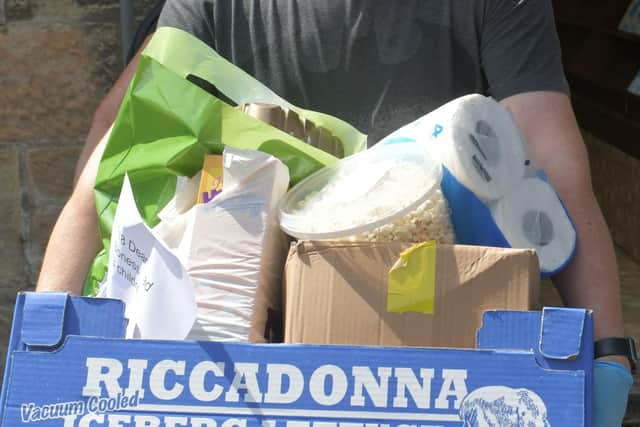Falkirk Council marks milestone for its vital Support for People service
and live on Freeview channel 276
Falkirk Council’s Support for People service, set up in March 2020 as a rapid response to the coronavirus, aimed to make sure people had access to food, medicine and essentials during lockdown.
The service became a conduit between citizens in need and the huge number of volunteers and community groups who went to exceptional lengths to serve their communities.
Advertisement
Hide AdAdvertisement
Hide AdIn just over a year the service has supported more than 10,000 people through self-isolation grants, food parcels, medical supplies, and financial advice.


To date, the service has helped to support 2225 households with food parcels, 962 households with medical supply deliveries, 608 households supported with fuel costs, over 400 school pupils with food costs during self-isolation, 1332 pupils with winter hardship payments and provided more than 700 self-isolation support grants.
While there was an emphasis on supporting those most in need – such as people on the shielding list – Support for People service tried to help anyone who asked for it.
Fairer Falkirk manager Sally Buchanan said: “Some of the greatest impact we made was just answering the phone. We could be the only human contact some people had for weeks at a time, especially if they were shielding.”
Advertisement
Hide AdAdvertisement
Hide AdFalkirk Council staff played the role of broker, connecting people to voluntary organisations in the area who were best placed to help – such as food banks and the Royal Voluntary Service, who clocked up 180,000 volunteer hours between March 2020 and March 2021.
Through effective needs-based assessment, the service coordinated responses with voluntary organisations in the area based on the individual’s own circumstances. The result was a fair, transparent service with the user at the heart of decision-making.
Sally added: “We had a database of community groups based on their location and how they could help citizens. That meant we could quickly direct funding and people to the right volunteers.
“By taking an individual needs-based approach, we managed to address each person’s situation most effectively while allocating funding where it would create most value.”
Comment Guidelines
National World encourages reader discussion on our stories. User feedback, insights and back-and-forth exchanges add a rich layer of context to reporting. Please review our Community Guidelines before commenting.